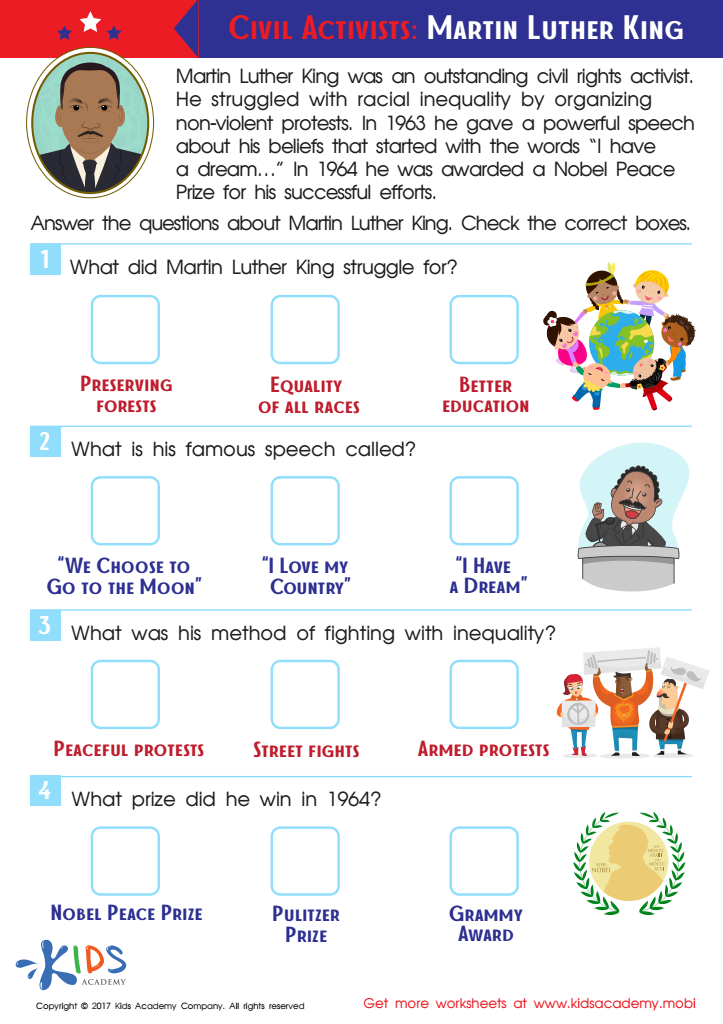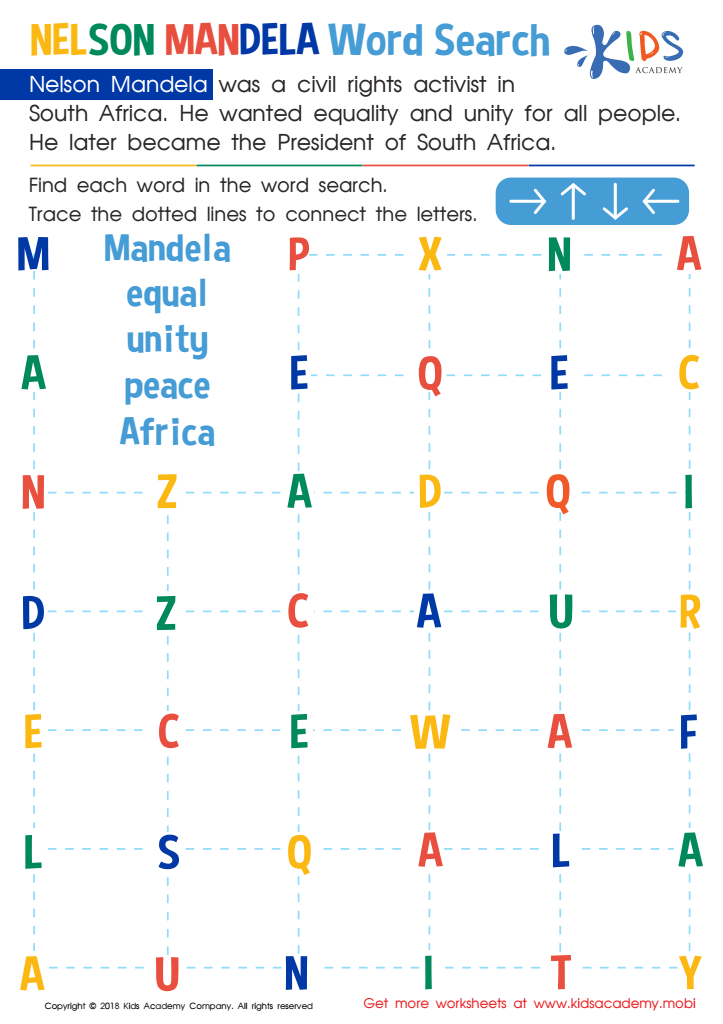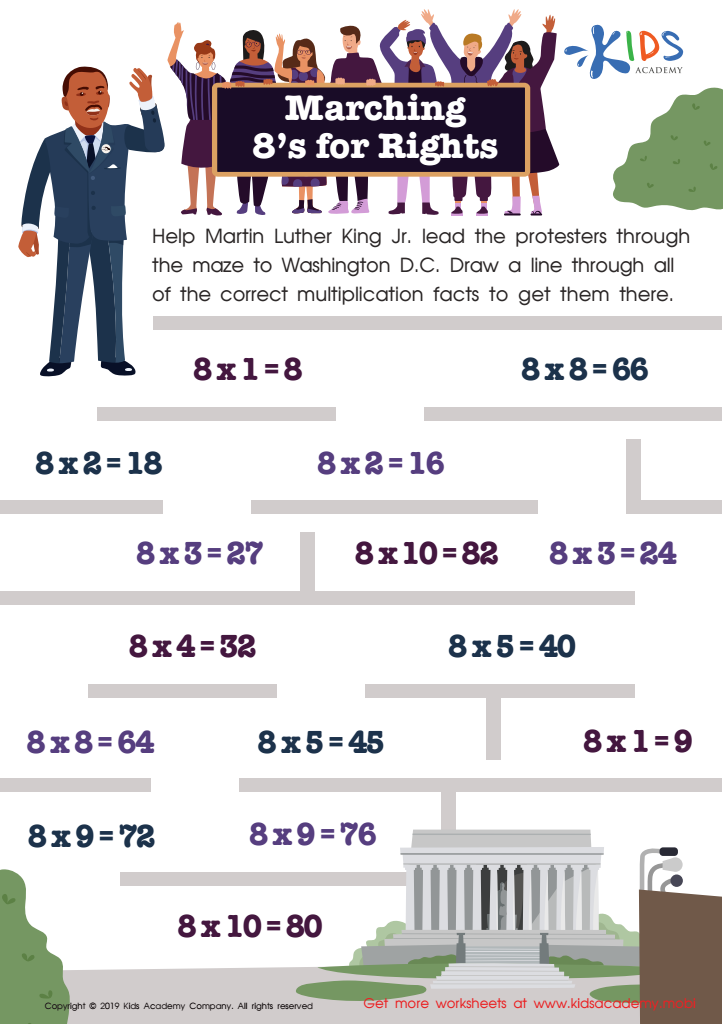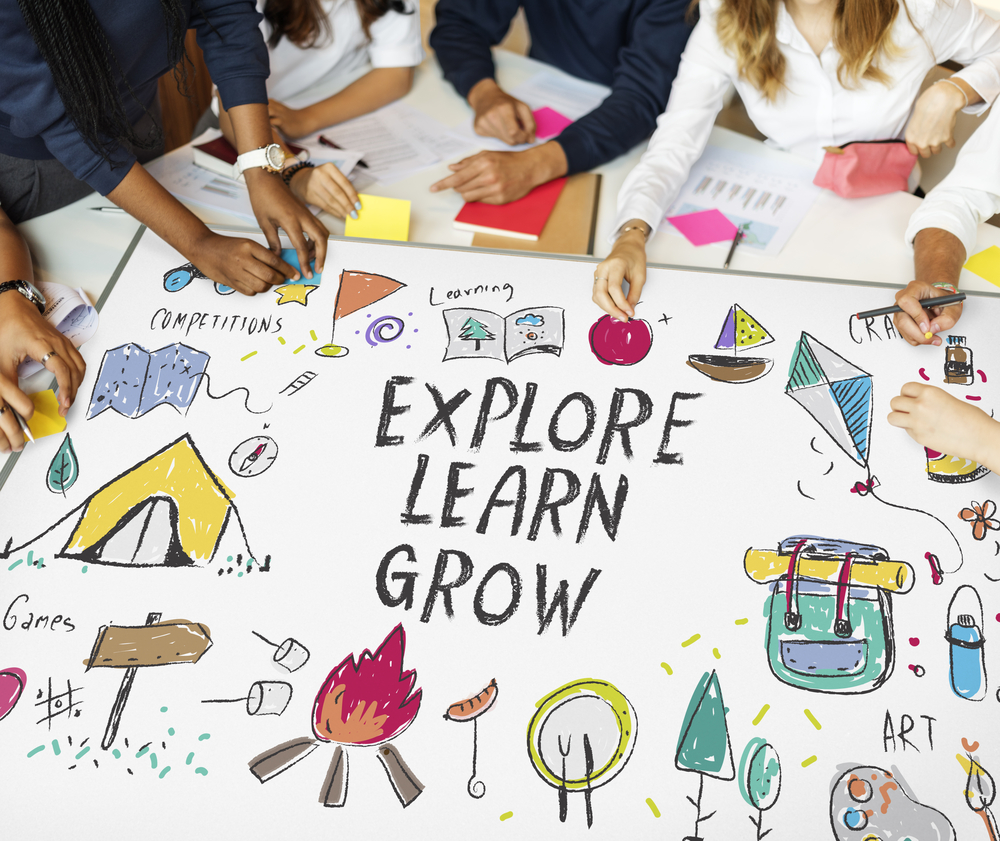Black history worksheets activities for Ages 8-9
3 filtered results
-
From - To


Martin Luther King Worksheet


Nelson Mandela Word Search Worksheet


Marching 8’s for Rights Worksheet
Black history worksheets activities serve as vital tools in the educational landscape, fostering an understanding and appreciation of the significant contributions and experiences of Black individuals throughout history. These activities are not merely academic exercises; they are gateways to conversations, reflections, and insights that enrich students' perspectives on the multifaceted nature of history and society.
Firstly, Black history worksheets activities are crucial for inclusivity in education. They ensure that the narratives and achievements of Black individuals are not marginalized but are recognized as integral parts of the world's historical tapestry. By engaging with these activities, students of all backgrounds gain a more comprehensive understanding of history, seeing beyond the often dominant narratives to appreciate the diversity of human experiences.
Secondly, these activities empower students by providing them with role models and stories of resilience, innovation, and leadership. Learning about figures such as Martin Luther King Jr., Harriet Tubman, Malcolm X, and many others through Black history worksheets can inspire students to see the possibilities for their own lives and to understand the importance of determination, courage, and vision.
Furthermore, Black history worksheets activities encourage critical thinking and empathy. By examining historical events, societal changes, and personal narratives, students are prompted to consider the complexities of social justice, equality, and human rights. These discussions help cultivate a generation that values diversity and is committed to building a more inclusive and fair society.
Lastly, these activities help bridge cultural gaps, promoting understanding and respect among students from different backgrounds. Through learning about the struggles and triumphs within Black history, students can find common ground and foster a sense of community and solidarity.
In summary, Black history worksheets activities are invaluable for their role in education. They not only fill knowledge gaps but also build emotional intelligence, social awareness, and a deep appreciation for the rich tapestry of human history. Through these activities, students are equipped to navigate the world with a more informed and compassionate outlook.

 Assign to My Students
Assign to My Students




















